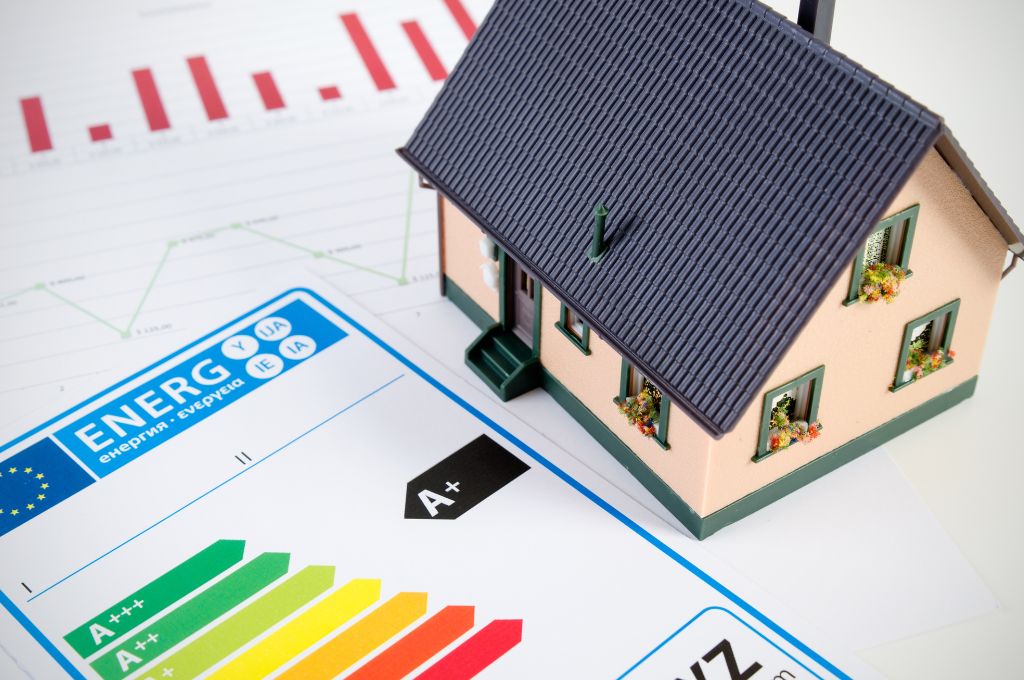With rising energy bills and growing awareness about climate change, choosing energy-efficient home appliances is more vital than ever. They not only help you save money on your energy costs, but they also help you lessen your carbon footprint at home. These are some recommendations for selecting energy-efficient appliances for your home.

1. ENERGY STAR
Keep an eye out for the ENERGY STAR logo if you’re in the market for new home appliances. This label verifies that the product in question satisfies the requirements for energy efficiency imposed by the United States Environmental Protection Agency (EPA).
2. Energy-efficiency rating (EER)
Try to find home appliances that have a high rating for their energy efficiency. The higher the rating, the more energy-efficient the appliance is in terms of its use of energy.
3. Energy-saving features
As mentioned above, when shopping for new home appliances, be sure to look for ones that have energy-saving features like an automatic shutoff, a sleep mode, or programmable settings.
4. Appliance size
Choose an appliance whose capacity is proportionate to the demands of your household. An appliance that is too big will consume energy, whereas an appliance that’s overly small may not be effective enough to meet your requirements because of its smaller size.
5. Appliances with a timer or delay start
You can reduce the amount of energy you use by using appliances that have a timer or a delay start feature. These features allow you to set the appliance to turn on or off at specific times.
6. Appliances with low water usage
Select home appliances, such as dishwashers and washing machines, that use a relatively small amount of water. This will help you save money on energy costs and conserve water.
7. Front-loading design
Choose home appliances that load from the front whenever possible. Washing machines and dishwashers that load from the front use less water and require less energy to run than those that load from the top. This makes front-loading models more energy-efficient.
8. Appliances with a natural gas option
Keep an eye out for home appliances that come with a natural gas option. Consider buying appliances that can run on natural gas if you have access to this fuel source. Natural gas is frequently less expensive than electricity and results in the emission of fewer greenhouse gases.
9. High-quality insulation
Select home appliances that have a superior level of insulation. Home appliances that have good insulation will be able to retain heat for longer, which will result in a reduction in the amount of energy required to run the appliance.
10. Product reviews
Before making a purchase, make sure to read some product reviews. Read reviews written by other customers before making a purchase of a home appliance. This will provide you with a clearer picture of the appliance’s energy efficiency as well as whether or not it will fulfill your requirements.
Choosing energy-efficient home appliances FAQs
What is an ENERGY STAR label?
An ENERGY STAR label is a certification that an appliance has met the requirements for energy efficiency set by the United States Environmental Protection Agency. This certification shows that the appliance can save both energy and money.
What is an energy-efficiency rating?
An energy efficiency rating is a measurement of how much energy an item needs in order to carry out its purpose. The higher the grade, the more efficient the appliance is in terms of its use of energy.
What is the difference between front-loading and top-loading appliances?
The answer is that front-loading appliances are more energy efficient since they consume less water and require less energy to run than top-loading versions.
Can energy-efficient appliances save me money?
The short answer is yes; over the course of their lifetime, energy-efficient appliances may reduce the amount of money spent on monthly utility bills, making them a worthwhile investment.
Are natural gas appliances more energy-efficient than electric appliances?
If you happen to have a source of natural gas in your house, appliances that run on natural gas may be more cost-effective and use less energy than electric appliances.
Final words
In conclusion, purchasing energy-efficient home appliances can help you save money on your monthly energy bills and reduce the amount of carbon dioxide emissions produced by your household. You’ll be able to select home appliances that are not only environmentally friendly but also suitable for your requirements if you keep these guidelines in mind. Before making a purchase, it is important to ensure that you are getting the most out of your money by remembering to do research and compare different products.

